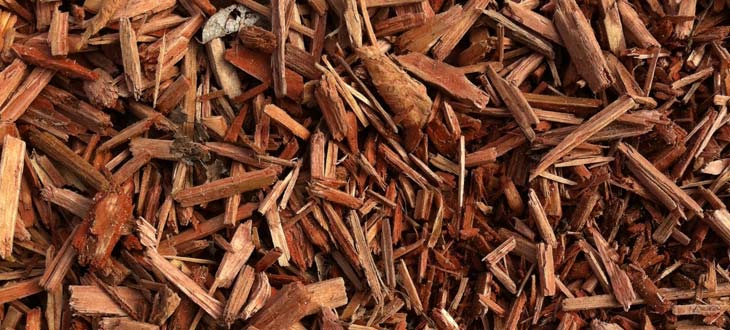Best Mulch for Vegetable Gardens (and Worst Mulch)
Mulch is used for flower beds, trees, gardens, leveled ground, roses, etc.
We all know that mulching has numerous benefits for your plants, but which is the best mulch for vegetable gardens?
Luckily for you, I made a list of the best mulch types for your veggies.
When it comes to choosing a mulch type, the number of options available can be overwhelming.
Some of the mulches may look good and can be great for landscaping but are not all suitable to be used for vegetable gardens.
Disclosure: This page contains affiliate links. This means that the owner of this website might be compensated for any qualifying purchases made via these links.
Contents
Best Mulch for Vegetable Gardens
I’ll start with my favorite mulches and which I consider being the best mulch for vegetable gardens.
1. Coconut Husk Mulch (Coir Mulch/Coco Husk Chips)
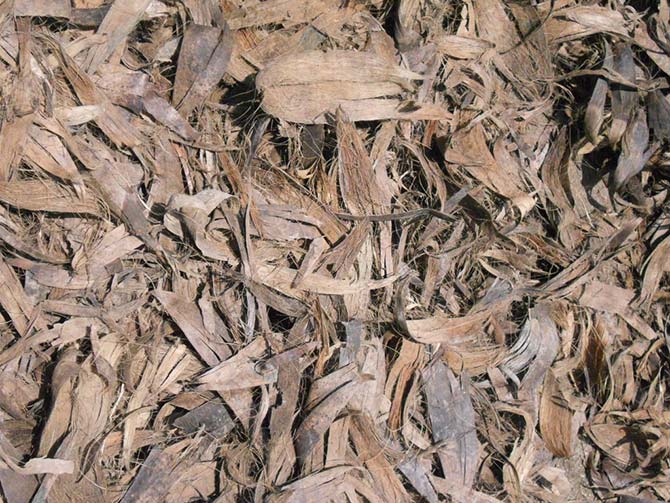
This mulch is made from coconut shells and is a perfect alternative to the tree bark-based mulches.
Coconut husk allows good air flow, keeps the weeds out, doesn’t wash away when you water your plants and contains absolutely no pesticides and no chemicals.
The strong point of this mulch type is that the coconut husk mulch absorbs the water very well and slowly releases it to the plants. Therefore, you should water the plants less frequently when you use this mulch.
It’s also a great choice for potted plants, containers, and for indoor use because it has a smooth texture and almost no odor.
The coconut husk it’s also high in nutrients, it’s free of bacteria and most fungal spores and has a balanced pH, which makes it suitable for any type of plants.
Coconut husk mulch is cheap and can usually be found in compressed bricks that increase their volume 8 to 10 times in water.
2. Pine Straw Mulch
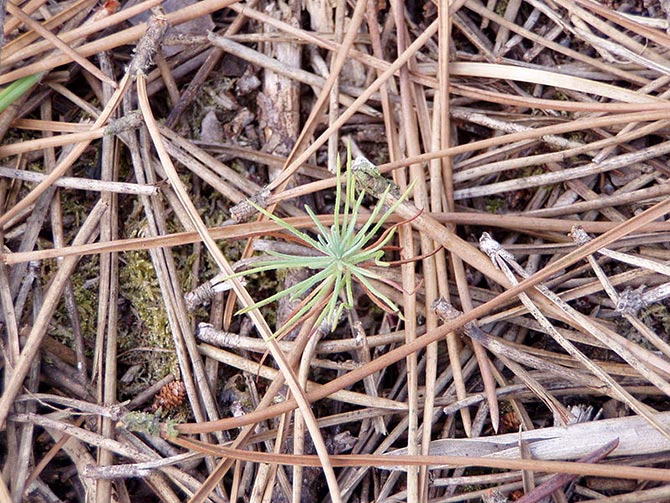
You can find this mulch for free in the pine forests, or you can simply buy it from Amazon. It’s one of the easiest to find mulches and it’s also pretty cheap.
The pine straw mulch allows a good water infiltration to the roots of your plants, maintains a good humidity level in the soil, doesn’t wash away, and stops the weeds from growing in your vegetable garden.
I prefer this mulch type because is 100% organic and does its job extraordinarily well.
Besides that, I think it looks good and gives your garden a natural look.
Some gardeners avoid using the pine straw mulch because of the myth that once they decompose, the pine straws will make the soil acidic and will lead to a decline in soil fertility.
However, that’s only a myth.
Pine needles do NOT make soil acidic.
While the pine needles are acidic in the raw shape, by the time they fall on the ground and decompose, the pH of the pine straws becomes neutral and the acidity is not transferred to the soil.
According to the Forest Industry Council of Australia, pines do not harm the soil and various studies have found no evidence of soil acidification in the pine forests.
In fact, they even affirm that the “soil tends to become less acidic under pine than under eucalypts”.
Many other biologists confirmed this fact. Therefore, the myth that the pine straw mulch makes the soil acidic is busted.
3. Pine Bark Mini Nuggets
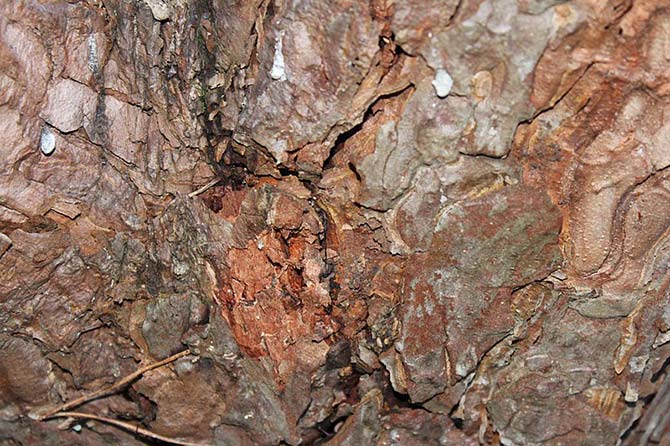
This mulch has a really nice and natural brown-dark color which blends exceptionally with the landscape. If you don’t like the hay-look of the mulch made from pine straw, then you will probably adore the appearance of this mulch.
Besides its good looks, the pine bark mini-nuggets is very effective as garden mulch.
It’s again 100% organic, it’s slowly decomposing, it doesn’t wash away easily, maintains the humidity in the soil for a long time and it stops the weeds from invading your beloved garden.
The pine bark mini-nuggets mulch is fairly cheap, but unlike the pine straw mulch which can cover a bigger ground surface with less mulch, you might need to purchase a larger amount of this mulch if you have a big garden.
I think the pine bark mini-nuggets is also one of the best mulch types for containers.
The mulch made from pine needles and the pine bark are my two favorite choices in terms of mulches.
4. Natural Cedar Shavings
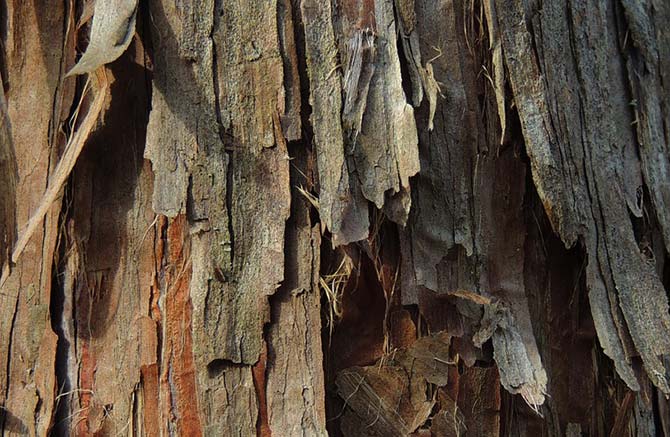
The cedar wood originates from different trees known as “cedars” that grow in various parts of the world.
This mulch type is just as effective in gardening as the mulch made from pine straws or pine bark.
The great advantage of cedar mulch is that not only it’s going to keep the moisture in the soil and protect your plants from nasty weeds, but the strong smell of cedar wood will also repel the bugs and keep the insects away from your garden.
Just as in the case of the mulch made from pine straw, there are people sustaining that the mulch made from cedar wood can harm garden plants.
Fortunately, that’s yet again just a myth circulating in gardening communities. Several studies have shown the opposite and have concluded that the cedar wood actually helps the plant growth instead of harming them.
Just make sure that when you buy cedar shavings, it’s clearly stated on the packaging that the product contains only 100% natural cedar shavings. You don’t want to end up buying mulch that was treated with chemical substances.
5. Cypress Mulch
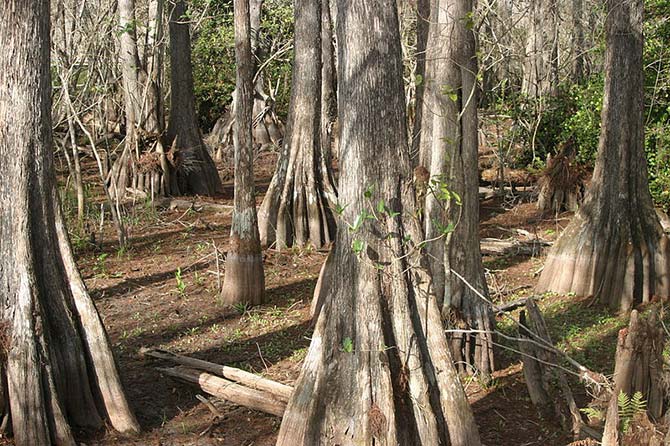
The Cypress mulch is made from shredded pond cypress trees and bald cypress trees.
“Cypress” is a common name for several coniferous trees in the family of Cupressaceae that grow on wet, swampy, and seasonally inundated soil in several areas of the United States (mainly Florida and Louisiana).
In nature, these trees provide the home for several species of wildlife and their roots also provide a natural water filtration system for ponds.
Unfortunately, due to the high demand for their wood, the number of the Cypress tree forests has declined radically in recent years.
Even if the Cypress can be very efficient as mulch for your plants, to protect the trees in the Cupressaceae family, I suggest you to choose an alternative like pine bark, pine needles, cedar shavings or coconut husk.
Worst Mulch for Vegetable Gardens
1. Rubber mulch
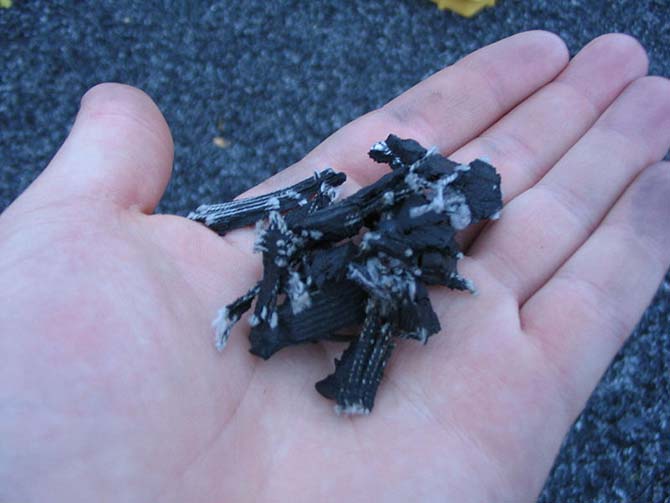
This mulch type is very often used for kids playgrounds and landscaping projects, but there are even people that use the rubber mulch in their vegetable gardens.
The rubber mulch is appealing to some gardeners because it doesn’t rot, maintains very well the humidity in the soil, doesn’t attract insects, and requires less maintenance.
Apparently, it looks like the rubber mulch can offer all the benefits of the organic mulch.
Still, I would never use rubber mulch or any type of synthetic mulch in my garden.
Why?
Because these mulches can contain toxic substances that can contaminate the soil and do more harm than good.
First of all, the rubber mulch is made from recycled tires. In the tires manufacturing process, there are utilized different materials like carbon black, sulfur, liquid latex, acids, additives, and other substances.
The rubber mulch is basically made just from tires chopped into small pieces.
Well, since I’m not a chemist you might think that I’m just paranoid, but let’s see what experts say about rubber mulch.
Dr. Linda Chalker-Scott, Ph.D., Extension Horticulturist and Associate Professor at Puyallup Research and Extension Center at Washington State University, in “The Myth of Rubberized Landscapes” has concluded the following:
- Rubber mulch is not as effective as other organic mulch choices in controlling weeds.
- Rubber mulch is highly flammable and difficult to extinguish once it is burning.
- Rubber mulch is not permanent; like other organic substances, it decomposes.
- Rubber mulch is not non-toxic; it contains a number of metals and organic contaminants with known environmental and/or human health effects.
So, it appears I’m not the only one who thinks that the rubber mulch is very toxic for plants.
For more pros and cons of using rubber mulch in the garden, read this post.
2. Dyed Mulch
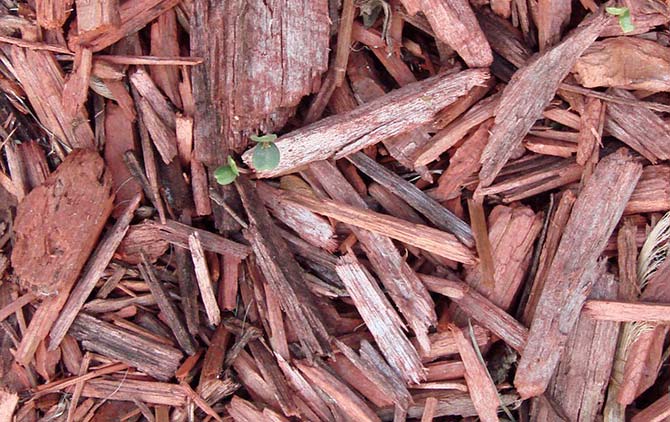
This mulch is available in several different colors (most popular are red, green, brown, and black) and it’s made from recycled wood (it can be anything from wood pallets to lumber or wood from demolition sites).
Sounds pretty good, right? We make mulch by recycling wood wastes and we also protect the environment.
The reality is that a large part of this recycled wood has been treated with chemical substances during the initial manufacturing process, chemicals designed to prevent the wood from rotting and degrading.
Many of these chemicals are passed to the dyed mulch and if we use these materials as mulch for our garden, we risk contaminating the soil and vegetables with dye and other potentially dangerous substances.
In conclusion, you shouldn’t use dyed mulch in your garden.
3. Compost

I don’t share the same opinion and I truly think that compost should be solely used combined with the soil and not placed over the surface of the ground with the purpose of stopping weeds from growing.
A mature compost provides the soil with the essential nutrients for the healthy growth of the plants. Applying the compost as mulch will offer a favorable habitat both for the plants, but also for the growth of the weeds.
Probably, if you apply a very thick layer of compost over the surface of the soil, it will keep the weeds away for a short time. Still, in the end, the weeds will pierce the layer of compost and invade your garden.
Once that happens, the nutrients in the compost will only help the weeds to grow faster.
Therefore, I’d recommend you to limit the usage of compost as fertilizer and soil reconditioner and not for mulching.

